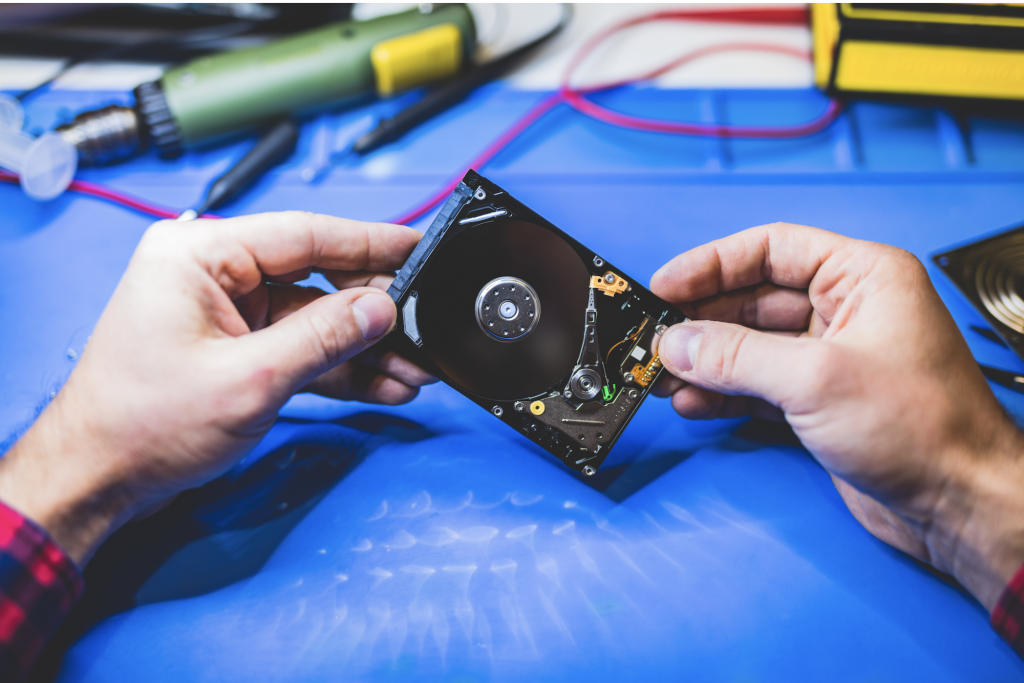External hard drives are among the best available options to increase the storage capacity of your computer and act as a backup for all your important data. They are quite affordable and easy to use, and can store from 800 GB to 4 TB of data. This makes external hard drives our go-to option when it comes to storage and backup devices.

However, like all other electronic hardware, external hard drives are prone to corruption and failure. They can stop working at any time without any warning, and the only way to ensure that does not happen is to be careful enough with them. There e certain signs that can signify that your hard drive may malfunction, and it is important to pay heed to those.
We have compiled a list of tips that you can follow to ensure that your external hard drive is protected from chances of corruption and failure. Of course, there is not much you can do if it has already been corrupted, but keeping these in mind will ensure that you are more careful with your hard drive from next time.
Avoid any sort of physical damage.
It must be remembered that if electronic devices are damaged physically, then the chances of recovering your data or reusing the device can go down drastically. Software problems can be fixed with proper expertise but physical damages are harder to overcome. For this reason, environmental factors need to be considered. Make sure that your disk is away from water, dust, sources of fire or kept at heights from where it can fall easily.
Power surges and overheating.
Abnormal surges in power can also damage the drive. It is also important to ensure that the device does not overheat, since this can potentially damage your computer as well. For this, you would need to clean the ventilation system of your computer very frequently.
Use on proper surfaces.
Always keep your external hard drive on a flat, dry and slip-free surface. Surfaces like cloth and paper can affect heat retention of the device; hence it must not be kept on top of them.
Do not overload.
When you reduce the data load on an external hard drive, you are increasing its health by ensuring that it does not wear out easily. Even if your hard drive has a very high storage capacity, it is important to make sure that you do not always keep it at its full capacity. All unwanted or unused files should be removed and proper cleanup is necessary to maintain its health.
Use the USB plug with care.
Whenever you plug in the hard drive to your laptop or computer, make sure that you plug in the cable/adapter to the USB port gently. Do not yank or pull at the cable. Always check for dust and corrosion on the port, since it may get plugged up. If the port is damaged, then you may have to potentially replace the whole hard drive.
Monitor the health of the hard drive.
When you use an external hard drive, it is important to use chdsk, S.M.A.R.T programs and key monitoring system in Windows to run a diagnostic on your hard drive health. This will notify you regarding any potential problems that your disk might have. Running this on a regular basis will keep you informed about the condition of your external hard drive by monitoring its health effectively.
Avoid static.
Static can ruin computers and all their components in a matter of seconds, and is usually overlooked. A simple static shock is enough to render all your devices useless.
Always use the ‘Remove Device Safely’ option.
A lot of people simply unplug their external hard drives after finishing up. This can cause considerable damage and you may lose important files. There is a button that enables you to remove/eject your hardware safely, adding a buffer to ensure that all your files are saved correctly. Using this feature goes a long way in maintaining the health of your hard drive as well as your computer.
In case the external hard drive breaks down completely, all your confidential data may get lost. In this case, you can contact professionals from WD My passport data recovery who can help you recover your lost files.